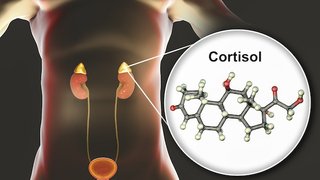Vasectomy: Safe, effective, affordable birth control for men
June 8, 2023

We’ve all seen the sitcoms where the male lead is given an ultimatum: Get a vasectomy or say goodbye to sex. He freaks out, digs in, hilarity ensues, and eventually he decides to get the procedure – only to discover it was quick, easy, and much less scary than he thought.
In real life, most patients are far less dramatic. But that last part is true. Vasectomy is a safe, relatively simple procedure that is more than 99% effective at preventing pregnancy.
In fact, vasectomy, which blocks the release of sperm during ejaculation, is one of the most cost-effective ways to prevent pregnancy – it’s a one-time, outpatient procedure that most insurance companies cover. Vasectomy does not interfere with testosterone production, sexual function, or ability to urinate. The surgery can even be reversed in some cases, though it is intended to be permanent.
More than 500,000 vasectomies are performed each year in the U.S.
Men considering vasectomy, or even those just curious about it, should talk with a urologist, a doctor who specializes in the male urinary system. We’ll explain the procedure and answer your questions. If you choose to move forward with a vasectomy, we want you to feel confident and committed to the decision.
How vasectomy works
Vasectomies are usually performed in the doctor’s office or clinic.
During initial conversations with your urologist, you’ll decide whether you will need to be fully sedated for the procedure. Many vasectomies are completed using only local anesthetic that numbs the surgical area, but in complex cases general anesthetic can be used. You should arrange for someone to drive you home following the procedure if you get anesthesia, but most men can drive themselves home if they just get a local anesthetic.
Your doctor will advise you to avoid aspirin, blood thinners, and nonsteroidal anti-inflammatory drugs such as ibuprofen for at least 48 hours prior to the procedure to reduce your risk of bleeding. Be sure to discuss any medications you are taking with your doctor.

Just prior to the procedure, your scrotum will be shaved and washed with an antiseptic solution. If you’re receiving local anesthetic, this will be injected to numb the area, blocking any sharp pain.
The doctor will make a small incision in your scrotum on each side and retrieve the vas deferens – the tube through which sperm travels from the testicles to the urethra. The doctor then cuts the vas in two, and both ends of each tube are surgically sealed before being placed back inside the scrotum. The incisions in the scrotum are sealed with stitches or allowed to heal on their own.
Most patients return home immediately after the procedure. It is common to feel some discomfort for a few days. You may take over-the-counter medication such as Tylenol, Aleve, or Motrin to help. Swelling and pain can be reduced with an ice pack applied 20 minutes at a time – harkening back to our sitcom scenario, a bag of frozen vegetables can be an effective ice pack substitute. A scrotal support or jock strap to elevate the scrotum is recommended for one to two weeks.
Avoid sex and ejaculation for a week after the procedure. When you resume sex, use backup birth control for at least 12 weeks or longer, depending on your doctor’s recommendations. Most men can return to work the next day, though you’ll want to avoid strenuous activities such as jogging and strength training for approximately a week.
Complications from vasectomy are rare. There is a slight risk of post-vasectomy pain syndrome, which occurs in fewer than 2% of men. It is usually treatable with medication.
Questions men often ask about vasectomy
How soon does it prevent pregnancy?
It can take approximately 12 weeks or longer before sperm are no longer found in your semen. You will be fertile until you clear all the sperm from your tubing, so there is a risk of pregnancy until all the sperm are cleared. It is important to continue birth control until you get checked to make sure you are sterile. After the procedure, some sperm cells remain in the vas deferens and other structures of the penis. Your doctor will test your semen after 10-12 weeks to determine if all sperm have left the system.
Until your semen is free of sperm, you can still get your partner pregnant. Use other forms of birth control during sex until laboratory testing confirms your semen is sperm-free.
Are there age or other requirements?
The short answer is no. American men over age 18 can generally choose to have a vasectomy. Of course, the details can be tricky.
In general, federally funded agencies require patients to be over 21. Certain sexually transmitted diseases, systemic infections, hernias, surgeries, or injuries to your scrotum or testicles could render some men ineligible for vasectomy or require more complicated surgeries.
In 2018, a study found the average age was 37 for people living in cities and 36 for those in smaller communities. The average person getting a vasectomy usually already has children, the study found.
Some doctors may ask young patients to wait 24 to 72 hours after discussing vasectomy before deciding whether to pursue the surgery. There is no upper age limit for vasectomy if the patient is healthy.
Will a vasectomy hurt?
You may feel a slight pinch when the anesthetic is injected. Some men report a brief pulling sensation as the vas deferens is handled during the procedure. However, the procedure should not be painful.
After the procedure, you are likely to experience some soreness, bruising, or swelling during healing. This is normal and can be managed with over-the-counter pain medication and ice packs.
Will I stop making semen or getting erections?
Vasectomy has no effect on the hormones, structures, and processes that affect your ability to get or maintain an erection. Vasectomy also should not affect your sex drive or ability to enjoy sex. In fact, some men report enjoying sex more because they aren’t worried about it resulting in a pregnancy.
You will continue to produce semen at climax, but the sperm that fertilize your partner’s egg at conception will remain inside your testicles, where your body will reabsorb them.
Does vasectomy increase my risk of prostate cancer?
Many studies have shown that there is no increased risk of prostate cancer or genitourinary conditions after vasectomy.
Vasectomy does not prevent sexually transmitted infections (STIs) such as HIV, gonorrhea, or herpes. STIs are passed through skin-to-skin contact or exchange of infected bodily fluids, none of which are associated with vasectomy. If you are concerned about STIs, you should still use condoms.
Can vasectomy be reversed?
Vasectomy should be considered permanent contraception, though most cases can be reversed by reconnecting the cut ends of the vas deferens. Only 50-70% of patients who have a vasectomy reversed will be able to get a partner pregnant, and the reversal procedure may not be covered by insurance.
Consider your future, then decide
It’s understandable that many men have reservations about elective surgery on a sensitive area.
But according to the Centers for Disease Control and Prevention (CDC), only 5% of men regret getting a vasectomy and 6% of women regret their partner’s vasectomy.
Most men and their partners are happy with the decision to have the procedure.
To talk with a doctor about vasectomy, call 214-645-8300 or request an appointment online.











